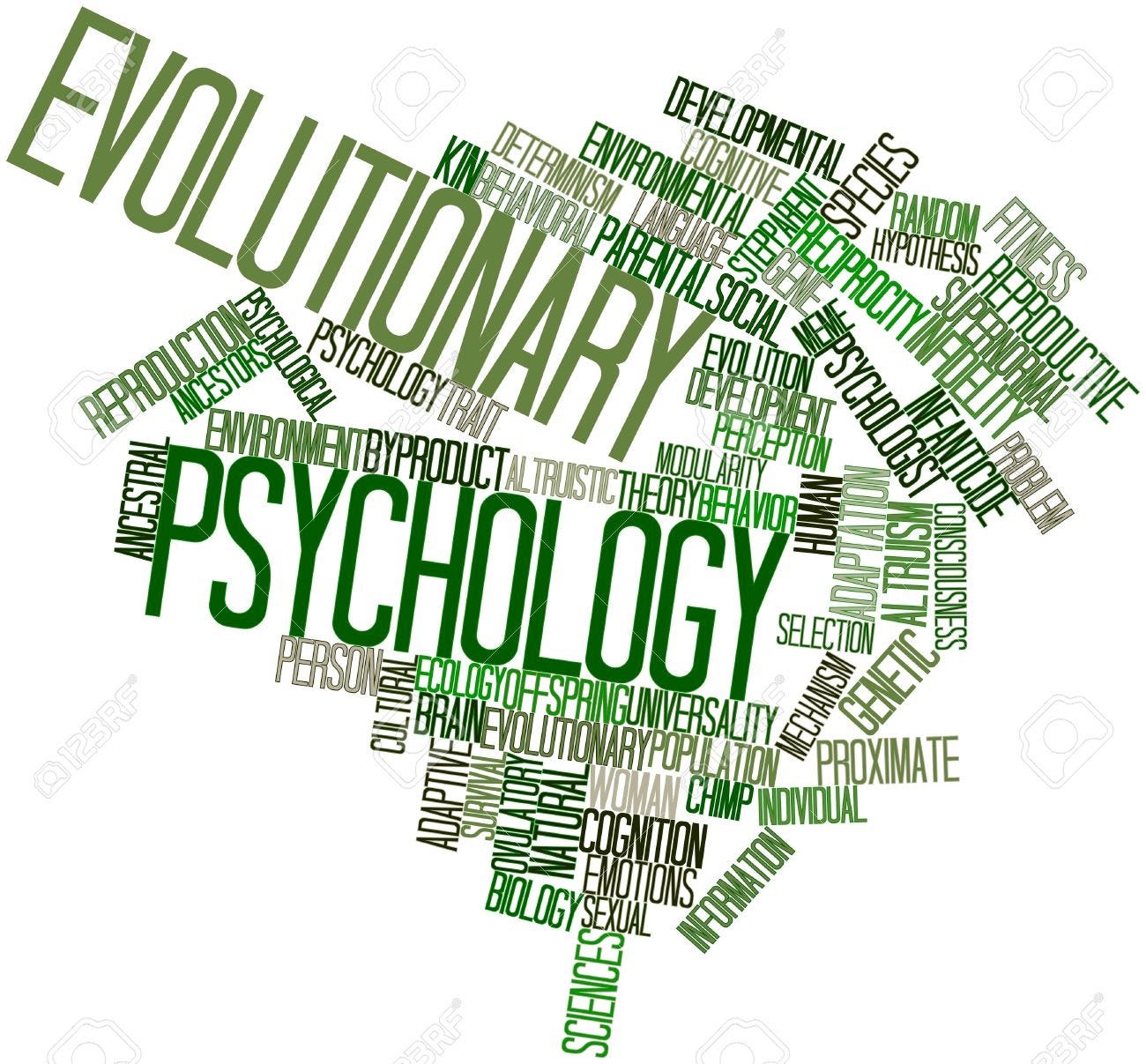The tempestuous connection between nature and nurture, empiricism and social analysis, science and philosophy, has largely been a concern with self-knowledge. When we look in the mirror, ponder our behavior and seek greater understanding of our relationships, we are caught in a bind of where and how to look. When seeking to offer explanations, do we consider our internal mental states or the external behavioral interactions? To what degree does my body, or more specifically my brain, interact with my family and environment? Are the results of this interaction a determining force upon who I am and what I will do in the future? A potential frame to resolve this difficulty resides within a change in context, the interplay of evolution and psychology.
A Struggle of Explanation
The history of the struggle over these questions goes as far back as Plato and Aristotle, reached a long-standing divide with Descartes and Kant and manifests in the modern debates over artificial intelligence and gene research. Much of the concern has been less focused on the questions themselves and more on the means of answering them.
"From its empirical beginnings in Germany in the mid-nineteenth century psychologists themselves, as well as other prominent nineteenth-century century social philosophers, held that the human mind had to be approached in two fundamentally different ways. On the one hand, there is the stuff of sensation, attention, learning and memory which can be studied as science through normal, if ingenious, empirical methodology. These are things that can be measured and experimentally manipulated. On the other hand, there was Homo sapiens as a social and conscious being whose essence could only be understood by interpretation of meaning - and which certainly cannot be measured. Are these even the same disciplines?" (Plotkin, 2004)
The issue of measurement continues to this day. Any time there is push-back on a reported claim of psychological research, the form such takes is usually a declaration of personal experience. Whatever the merits of this argumentation, the central disagreement is that between the so-called 'cold' science of the lab and the lived-in reality of the individual. People hear of experiments and then go home to their children, their spouses, pets and neighbors.
Whether through empirical experimentation or the more qualitative realm of introspection, each method of inquiry is made more complex by notions concerning the origins of human nature.
"Because of the empiricist origins of psychological science in western intellectual history as opposed to the inclination towards nativism within evolutionary theory, there has always been the tendency for each to see the other as a rival account of the human mind. Whilst this separation has never been absolute and complete it has always been a division between the two, and one that remains to a large extent. The empiricists lay stress upon the importance of experience in shaping minds, be they human or nonhuman. Nativists (or rationalists in more traditional philosophical language) emphasize that much of human nature is inborn." (Plotkin, 2004)
The history of empiricism vs nativism has often taken root in political ideologies. When someone emphasizes the role of social programs to shift human outcomes, they're basing such thinking on a form of empirical and therefore, experiential and malleable, ground of human nature. The contrary position is voiced in phrases like "it's just human nature," or "boys will be boys" or "criminal reform is impossible," or some form of personal responsibility being so strong that it is cut off from social influence. Essentially the person is basing such an opinion on a variation of nativism.
However, this debate over experiential or nativistic is not so simple as labeling a political party. No person is consistent with either. As an aside, a noticeable difference occurs when opinions are concerned with themselves or with others, with the former being weighted by experiential influences and the latter being utterly nativist in its condemnation of the person's irresponsible behavior. The examples are a reminder that these questions and the means of answering them have been not only been plaguing us for millennia, but have real-world consequence.
Nature vs Nurture: A Change in Context
For a decade or more, the debate over Nature/Nurture has been seen as having an answer in their combination. Bringing up the dichotomy is, these days, to induce a round of groans and protests that 'of course it's both!' as if mere declarations are answers. While the disconnect has been noted as false, the way they are combined continues to be vacant a universally agreed-upon response. One potential answer is within the very theory of evolution that for so long was ignored by psychology.
As opposed to Lamarck, who saw evolution as that of external forces impressing upon the malleable organisms, Darwin was selectionist, or, better, interactionist.
"Organisms, he argued, occur in innumerable variant forms. These differences, variation, are caused by events internal to each organism and occur in advance of and unconnected with changes in the world. Selection, natural selection as Darwin called it, is the process by which some of these undirected (sometimes misleadingly called "blind") changes are incorporated into an integrated bodily structure and function better suited to survival and reproductive competence (fitness), and somehow transmitted to offspring." (Plotkin, 2004).
Essentially Darwin, and evolutionary theory after him, saw organisms as being in the world, where change is a complex interplay between the internal world (what later would be understood as genes) of the organism and the external world within and through which they exist. This begins the discussion not at the level of the individual, where debates of experience and nativism, nature and nurture, play out, but at the level of relationship, of the interaction of organism and environment. To focus on one or the other is to ignore that the fundamental unit of reality is relational interaction.
Maurice Merleau-Ponty is one philosopher who's thought offers a way of rethinking through this dynamic, with the notion of 'flesh.' As Garza and Fisher-Smith (2009) describe it:
"Understanding the body as flesh seeks to fundamentally surpass the terms “body” and “mind” as a framework for understanding human bodily existence. The flesh describes how the body is never a mere object among other objects, but rather emerges as intentionality incarnate. It is the vehicle of being-in-the- world, that by which we have a world and understand people and things."
To describe ourselves as being in the flesh is to admit our inextricable ties within the world in which we live. Our flesh is not impermeable, it breaths, sweats and takes in the stuff of our experiences. Our flesh processes the reality of a world broader than itself through the lens of its own needs/wants. Our flesh embodies pain and suffering, pleasure and joy, as interactions of an internal world answering the impetus of that which is outside our skin.
Plotkin (2004) describes one way evolution can be understood, a way that fits within the relational model noted here. This idea moves beyond the common framing of a focus on features, which often leaves behind the being as a whole. Instead:
"…evolutionary processes operate both within our minds as well as between them, an idea sometimes referred to as universal Darwinism. We are the way we are because there is a common set of processes that governs the transformation of living systems, be it the change in species in geological time or alterations in the memories and thoughts of an individual within their lifetime."
This common set of evolving processes does not work differently at a macro or micro level, they are the means by which living systems transform. The study of the individual components is only ever fully helpful when placed within the broader context of relationship. A purpose throughout the history of psychology is one of attempting to better understand humanity to better effect change. Looked at through the lens of evolutionary processes, we do not lose sight of the forest for the trees, we do not focus so exclusively on neurology that we forget our brains are embodied, we do not look at pathology as an illness of the individual but a response from within a larger environment. We do change and such is always defined and brought about in context.
"…we are mind and body and each of these dimensions of existence implies and interpenetrates the other. It is this ongoing dance of interpenetration that is the flesh and thus the ground for our concernful being-in-the-world. It is the ground for our experience of self and other, mind and body, self and world—the elemental relatedness out of which these aspects of human existence emerge." (Garza & Fisher-Smith, 2009)
References:
Garza, G., & Fisher Smith, A. (2009). Beyond Neurobiological Reductionism: Recovering the intentional and expressive body. Theory & Psychology, 19(4), 519–544. doi:10.1177/0959354309336318
Plotkin, H. (2004). Evolutionary thought in psychology: A brief history. United Kingdom: Blackwell Publishers.
Further Reading:
Lakoff, G., & Johnson, M. (1999). Philosophy in the flesh: The embodied mind and its challenge to western thought. New York: Basic Books.






